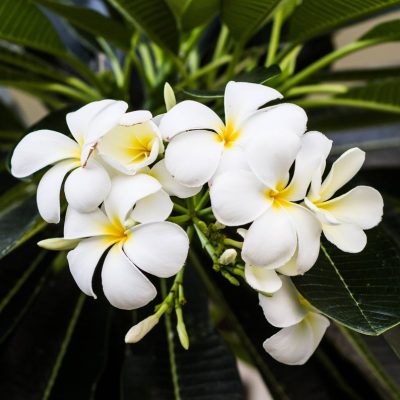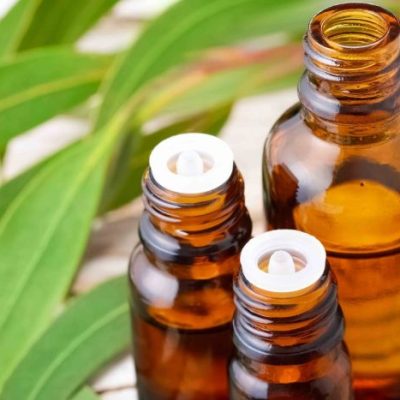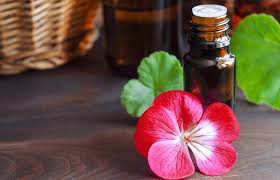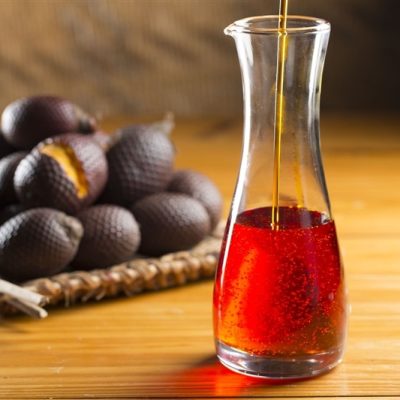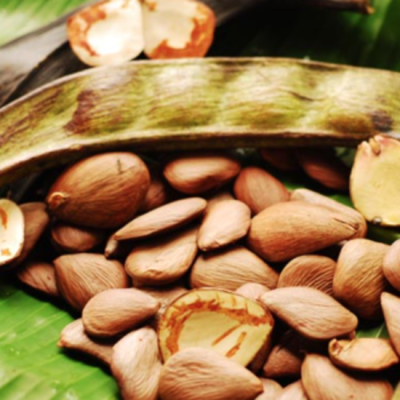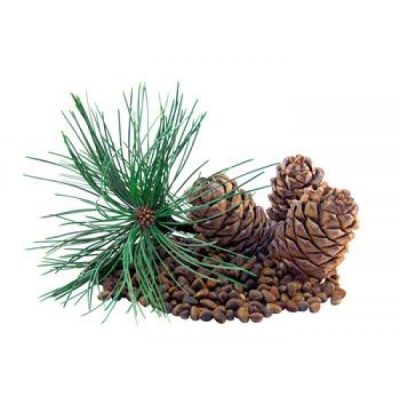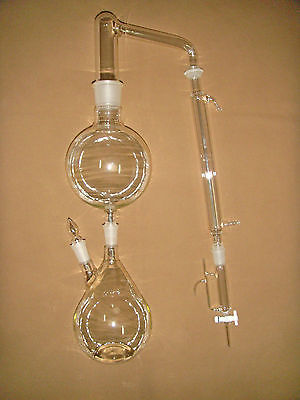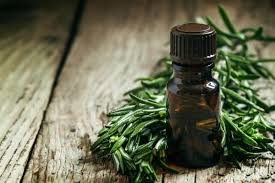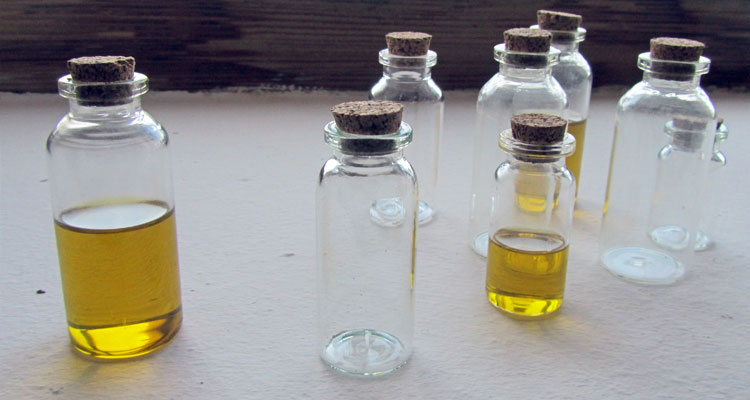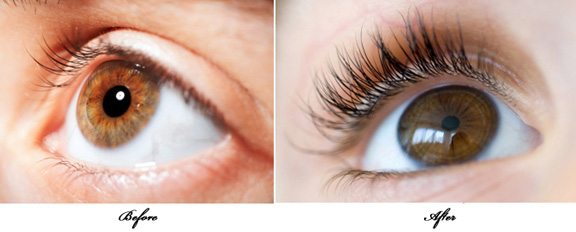Pimple and Blackheads Treatment, How to Use Tea Tree, Chamomile, Oregano, Basil and other Essential Oils for Acne
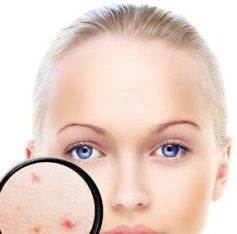
This article will explore the benefits of using Essential Oils in treating Acne. Essential oils have long been used for a variety of holistic and healing purposes. Their efficacy in treating acne and acne scars has recently become a subject of interest for researchers and acne sufferers alike. The following examines some of the most effective essential oils used for preventing and treating acne and acne scars, as well as discusses correct application procedures.
How Essential Oils Work in Treating Acne

At some point everyone has woken up only to discover an unwelcome pimple, a red and inflamed spot that you’re sure everyone is looking at. While clearly not a fatal condition, the presence of pimples and blackheads can nonetheless have a negative impact on one’s self esteem and in turn effect one’s participation in social events. Covering up acne with makeup is one means of coping with this (although many men seem reluctant to go this route!), but preventing and healing acne in the first place is a much more effective solution.
Causes of Acne
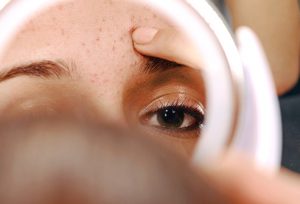
Acne is caused by an overload of sebum and dead skin cells which can block the pores of the skin, and this is a breeding ground for bacteria. When the pores are blocked by this substance, the result is usually a swollen raised bump on the skin that is filled with pus. Part of the reason why essential oils are so efficacious in treating acne is that they naturally contain anti-inflammatory and anti-bacterial properties, which can help reduce the redness and swelling caused by acne. Additionally, some of these also have the ability to help reduce stress and anxiety, which is another factor at work in producing acne in the first place.
However, because of their potent strength, essential oils should never be applied directly to the skin in their current form, as this can cause further inflammation and irritation of the skin. They must first be diluted with water or a carrier oil, which are neutral oils such as coconut oil, jojoba oil, or even the pantry staple olive oil. The ratio of diluting the essential oil with the carrier oil can vary, and suggestions for each respective oil are given below.
Why Essential Oils Are Ideal for Acne Treatment

While prescription antibiotics and a variety of over the counter medications can also be used to treat acne, essential oils have the advantage of being relatively inexpensive, completely natural, and will not contribute to antibiotic resistance which is increasingly becoming a concern in the medical community. Below are the top eight most effective essential oils used to prevent and treat acne and acne scars. While these oils are not known to cause adverse skin reactions in users, because skin sensitivity varies from person to person you should always try a small test patch on your wrist first to ensure that your skin will not respond adversely. Similarly, unless such a use is stipulated below, these essential oils are not meant to be internally ingested in their present form.
Tea Tree Oil
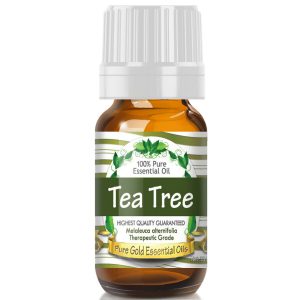
Tea tree oil is produced by steam distillation of the leaves of the tea tree, which is distinct from the plants used to make the tea we drink. It has had a long history of being used to successfully treat a wide variety of conditions from fungal infections and ringworm to toothaches and ear infections. It has several innate properties which make it an excellent choice to combat acne, including antibacterial, anti-fungal and antiviral properties. Moreover, it acts as a disinfectant, but will not rob your skin of its own natural oils, which can lead to further skin irritation. Individuals who have used tea tree oil to treat acne report satisfaction with the results, as well as the relatively low cost of it compared to store bought acne treatments.
A recent research study conducted a randomized double-blind clinical trial on patients with mild to moderate acne, using tea tree oil on one group, and a placebo on the other. According to the results of the study the patients who received the tea tree oil had a 3.55 times greater improvement in total acne lesions counted than the placebo group, and 5.75 times greater improvement according to their acne severity index.
How to Use Tea Tree Oil For Acne
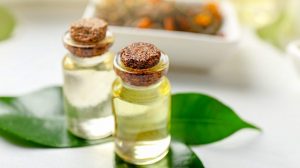
Be sure to use only 100% pure organic tea tree oil for optimal results. The oil can be used topically in a variety of different ways to treat acne. It can be diluted with a few drops of water or a carrier oil and applied with a q-tip or cotton ball to specific areas. This should be left on for about 3-4 hours, or overnight, and then wash your face as you normally would. You can also use it to make a toner or face rinse to cover a larger area of skin. To do this mix one part tea tree oil with nine parts water and apply to your whole face using a cotton ball. Rinse your skin and then apply a moisturizer that will not clog pores.
Lavender Oil

Lavender oil is also another oil that has been used successfully to treat a host of different issues, including headaches, depression, and pain relief. Applied topically as a skin treatment its antibacterial and antifungal properties can help combat not only acne, but also aids the increase of blood flow which may help minimize the appearance of wrinkles. In fighting acne, lavender oil helps to inhibit bacteria growth as well help to curtail excess sebum which leads to acne breakouts.
It is also widely recognized as having healing properties for scarred or irritated skin, thus making it an excellent choice to apply to prevent and treat scars caused by acne.[2] The relaxation associated with the smell of this oil makes it a great candidate to help reduce anxiety and stress, which can also be factors which contribute to acne.
How to Use Lavender Oil For Acne
If used for its stress reducing properties, a few drops of lavender oil can be applied to the wrists for a calming affect throughout the day. Applying it topically to treat acne can be done in several ways. One is to put a drop of it on a q-tip or cotton ball, and pat it on to the affect areas – lavender oil is one of the few essential oils that does not need to be diluted prior to applying it to the skin. However, if you do have sensitive skin you probably would be safer in diluting first with a few drops of a carrier oil. It can also be used to create an antibacterial moisturizer by combining it with a carrier oil such as jojoba.
Oregano Oil
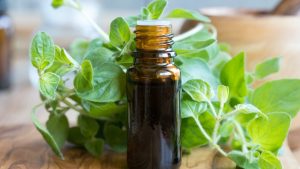
Oregano oil is derived from the same herb used to flavor culinary dishes (albeit in its wild, undomesticated form), and is extracted from the stem of the plant by steam distillation. Like the other essential oils discussed here, it, too, has been deemed to have efficacious healing properties for ailments beyond skin problems, including helping with gastrointestinal issues and sore throats when consumed internally. Its use in acne treatment is with a topical application or oral consumption. It also contains antibacterial, antiseptic, and anti-inflammatory properties as well as antioxidants which make it a good choice to help treat acne.
How to Use Oregano Oil For Acne
For topical usage, dilute one part of the oil with three parts of water or a carrier oil and use a cotton ball to apply it to the specific area of concern. You can leave this on for a few hours for best results before rinsing it off. Oregano oil can also be taken internally by diluting a few drops in a glass of water and drinking it, or purchasing oregano oil capsules.
Basil Oil
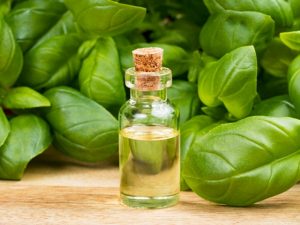
Another essential oil related to a popular kitchen staple is basil, which has recently been gaining attention for its abilities to help treat acne, although it has been used for centuries for its medicinal properties. It has very powerful antibacterial properties (indeed, it has been shown to inhabit the growth of bacteria strains that are now resistant to antibiotics), as well as contains antioxidants and antimicrobial qualities. A recent study observed that African basil used to treat acne over a four week produced better results in destroying P. Acnes (a bacteria which causes acne) than those treated with a ten percent solution of benzol peroxide, a medication that is frequently prescribed to treat acne.[3]
How to Use Basil Oil For Acne
To make a toner which will help keep skin clear of bacteria, add eight to ten drops of basil oil to about a quarter cup of water and mix well. This can be kept in the fridge for up to one week. Basil oil can also be applied to specific areas by mixing two drops of the oil with two teaspoons of aloe vera gel. Apply it with your fingers or a cotton ball, and do this twice a day for optimal results.
Lemongrass Oil
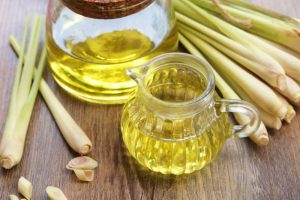
Extracted from the lemongrass plant, this essential oil works as a potent astringent for skin to help remove oil and dirt from pores which can contribute to acne breakouts. It can help tighten skin and reduce the look of pores, while also curtailing excess sebum production. Along with antibacterial and antifungal properties, it also has antimicrobial properties which can kill or help impede the growth of microbes which can contribute to acne breakouts. A study conducted in 2006 found that properties in lemongrass oil could help reduce permanent blemishes and scars caused by acne.[4]
How to Use Lemongrass Oil For Acne
Lemongrass oil can be used a few different ways to treat acne and scars left by acne. To apply it to your face, dilute the oil by using one part of lemongrass oil and four parts of a carrier oil. Massage this into your skin leaving it on for about an hour before washing it off. Similarly, you could create a toning spray by mixing one part lemongrass oil with four parts water in a spray bottle, and spray it on before you go to sleep, wiping it off the next morning.
It can also be added to a bath to help remove excess oil from your whole body, and a mixture of the oil with a teaspoon of witch hazel and fresh aloe vera can be applied to the face before sunscreen to help prevent oily skin throughout the day. Lemongrass oil also contains Vitamin E which is known to help reduce scaring.
Chamomile Oil
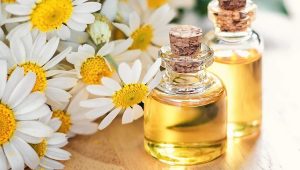
Chamomile Oil comes in two variants: Roman Chamomile oil and German Chamomile oil. German Chamomile has been used for hundreds of years to treat ailments which range from skin inflammations to gastrointestinal tract problems. The Roman type is particularly useful for calming properties while the German variety contains natural anti-inflammatory properties. However both contain antiseptic, astringent, and antibacterial properties which make them a great choice for battling acne.
How to Use Chamomile Oil For Acne
Mix two drops of Chamomile oil with one ounce of a carrier oil, along with some aloe vera to retain moisture. Apply an amount the size of a pea or pencil eraser to the pertinent areas. As a facewash using the oil cleansing method for sensitive and irritated skin caused by acne, mix two parts of Chamomile oil with one part jojoba oil.
Clary Sage Oil
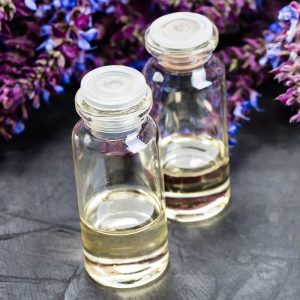
Users of Clary Sage have claimed to receive numerous benefits from it, from alleviating the symptoms of depression, calming an upset stomach, and as a powerful remedy for headaches and migraines. Its use in the treatment of ache also boasts numerous applications. This oil has antiseptic and astringent properties, and can be used to help control excess amounts of sebum production.
It can be employed to treat existing acne by reducing inflammation and destroying bacteria, and to prevent acne from occurring due to its ability to help regulate the skin’s natural oil production. Research studies have shown that it helps speed up the healing of wounds and infections which can sometimes be caused by picking at acne and acne scars. Using it in aroma therapy for its anti anxiety properties may help to relieve stress which can also contribute to acne breakouts.
How to Use Clary Sage Oil For Acne
For an all over body treatment, soak in a warm bath containing twenty five to thirty drops of Clary Sage oil for fifteen to twenty minutes. Four drops of Clary Sage oil diluted with jojoba oil makes an antibacterial face cleanser which will help dry out existing acne and prevent infections.
Eucalyptus Oil
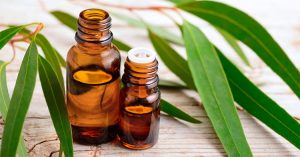
Eucalyptus oil is derived from the eucalyptus tree, native to Australia but now grown world wide. It likewise contains antiseptic, antibacterial, and anti-inflammatory properties, and it is a popular addition to many cosmetic and fragrance products, as well as employed to help alleviate a host of health issues.
It can be used in vapor form to treat respiratory problems, in oral form to assist with inflammatory ailments of the gastrointestinal trace, and topically to help with a variety of issues, including acne.This oil helps to alleviate acne primarily by reducing the amount of excess oil and sebum that the skin produces, and is able to remove any superfluous sebum already present. A recent study concluded that there was sufficient evidence to support the view that eucalyptus oil was able to assist in the prevention of the spread of acne.[6]
How to Use Eucalyptus Oil For Acne
To treat specific areas, dilute one drop of Eucalyptus oil by mixing it with two or three tablespoons of pure aloe vera gel. This can be applied with your fingers on the trouble areas, and then washed off after a couple of hours, helping to reduce inflammation and clean the area naturally.
Conclusions
Deciding which essential oil is the most effective for treating your own acne can be a bit of a trail by error, as everyone’s skin is different. This list, however, should set you on the right path towards finding your own natural solution to acne breakouts.
References
[1] Enshaieh S1, Jooya A, Siadat AH, Iraji F. “The efficacy of 5% topical tea tree oil gel in mild to moderate acne vulgaris: a randomized, double-blind placebo-controlled study,” Indian J Dermatol Venereol Leprol, 73.1 (2007): 22-25
[2] Hartman D., Coetzee JC. “Two US practitioners’ experience of using essential oils for wound care,” J Wound Care 8 (2002): 317-20.
[3] Karen W. and Martin Edzard Ernst. “Herbal medicines for treatment of bacterial infections: a review of controlled clinical trials,” J Antimicrob Chemother (2003) 51 (2): 241-246. See also Viyoch J, Pisutthanan N, Faikreua A, Nupangta K, Wangtorpol K, Ngokkuen J. “Evaluation of in vitro antimicrobial activity of Thai basil oils and their micro-emulsion formulas against Propionibacterium acnes,” Int J Cosmet Sci. (2006) 28.2: 125-33. This study concluded that Thai sweet and holy basil oils are appropriate formulations for acne treatment.
[4] P. Lertsatitthanakorna, S. Taweechaisupapongb, C. Aromdeea, W. Khunkittia. “In vitro bioactivities of essential oils used for acne control,” International Journal of Aromatherapy, 16.1 (2006): 43-49.
[5] Monika Sienkiewicz, Anna Głowacka, Katarzyna Poznańska-Kurowska, Andrzej Kaszuba,Anna Urbaniak, and Edward Kowalczyk. “The effect of clary sage oil on staphylococci responsible for wound infections,” Postepy Dermatol Alergol, 32.1 (2015): 21-26.
[6] Priyam Sinha, Shruti Srivastava, Nidhi Mishra, and Narayan Prasad Yadav. “New Perspectives on Antiacne Plant Drugs: Contribution to Modern Therapeutics,” Biomed Res Int (2014): 301-304.
